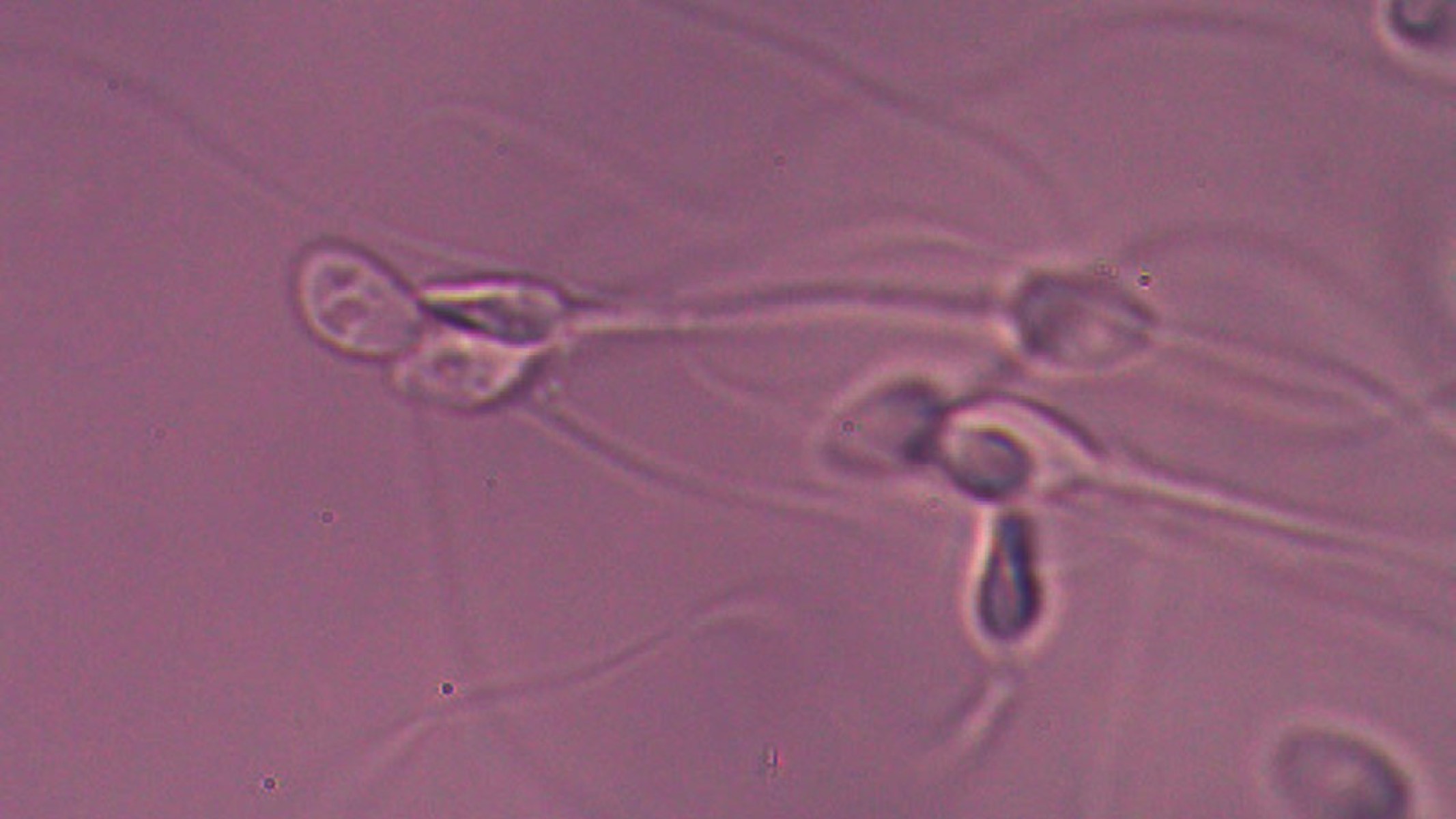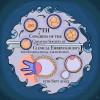
IVF NewsNews: ART & Embryology training program
Chennai Fertility Center and Research Institute 03 June 2023

July 2023 Training Batch Schedule - 03rd July - 17th July 2023. The International School of Embryology was established to offer training for clinicians in advanced reproductive technologies. Our skill and precision to all aspirants help them to know in-depth knowledge and experience. The members of our teaching faculty aim to bring doctors and embryologists to the highest level of knowledge about reproductive techniques and practical capability in the field. Our courses cover basics in Andrology, embryology, ICSI, and cryosciences (Hands-on). Limited Seats. For admission Contact 9003111598 / 8428278218 (Whats app) [ Full Article ] News: WEIRD SCIENCE
International IVF Initiative 01 June 2023

Tuesday, 13th June (3 pm EST / 8 pm UK / 9 pm CET) VIEW HERE
[ Full Article ] Study: What happens to abnormally fertilized embryos? A scoping review
Reproductive BioMedicine Online 29 May 2023
Embryos derived from oocytes lacking the typical two pronuclei (2PN), a sign of normal fertilization, show different development potentials, according to a comprehensive review of the literature by James Kemper, Yanhe Liu, Masoud Afnan, Ben Mol & Dean Morbeck. The analysis focused on embryos resulting from oocytes with no pronuclei (0PN), a single pronucleus (1PN), or three pronuclei (3PN), collectively termed non-2PN oocytes. The study revealed a significant gap in scientific knowledge about these non-standard fertilization outcomes. In a standard In Vitro Fertilization (IVF) procedure, the presence of two pronuclei and two polar bodies in an oocyte signifies a normally fertilized egg. However, a scarcity of research exists on embryos derived from oocytes that do not adhere to this norm. Despite their rarity, these non-2PN oocytes could potentially increase the pool of embryos eligible for transfer, providing hope for couples who lack high-quality embryos. The literature review, which considered 33 eligible articles, found that while non-2PN oocytes occur less frequently, a significant proportion of them stop developing between day 1 and day 6. As a result, they show a reduced chromosome integrity and diminished clinical utility compared to their 2PN counterparts. The review also identified that blastocyst rates were lower in 1PN oocytes (68.3% versus 32.2%), and that larger 1PN oocytes have a better developmental potential compared to smaller ones. Blastocysts from 1PN oocytes appeared to have a slightly reduced implantation potential and a reduced ongoing pregnancy rate when compared to 2PN blastocysts (33.3% versus 35.9%). While 13 of the included studies reported live birth rates, the results varied significantly, with rates ranging from 0 to 66.7%, pointing to a notable heterogeneity in practices. The study underlines the pressing need for additional research to improve understanding and interpretation of non-2PN oocytes. The authors suggest that advancements in technology such as time-lapse imaging and artificial intelligence algorithms could provide valuable insights into the development and potential viability of embryos from non-2PN oocytes. The study's findings challenge the conventional guidelines that only zygotes with two pronuclei are considered diploid, signifying a significant change in perspective and underscoring the complexity and dynamism of human reproduction. Further studies will be required to confirm these findings, but the potential for new advances in this area holds great promise. Source https://www.rbmojournal.com/article/S1472-6483(23)00111-6/fulltext [ Full Article ] Conference: ESHRE 39th Annual Meeting Copenhagen, Denmark 25-28 June 2023
ESHRE 29 May 2023

The European Society of Human Reproduction and Embryology (ESHRE) is gearing up to host its 39th Annual Meeting in Copenhagen, Denmark. Scheduled to take place from June 25th to 28th, 2023, the event promises four days of breakthrough scientific discussions, inspiring speeches, and unparalleled networking opportunities. This meeting follows the successful post-lockdown convention held in Milan in 2022. Copenhagen, acclaimed for its natural beauty and friendly atmosphere, has been chosen as this year's venue. The event will take place at the Bella Centre, which is conveniently located near the city's award-winning metro system and the airport. Copenhagen, known for its extensive bike paths and cycle-friendly infrastructure, offers visitors alternative modes of transport, such as bicycle rentals. Visitors staying beyond the event duration can explore Copenhagen's world-class dining, pristine beaches, and vibrant cultural scene. The city boasts renowned establishments like the Tivoli Gardens and numerous venues for outdoor concerts. Join the world's leading scientists and thought leaders at ESHRE 2023 in Copenhagen, an event that's certain to further the advancement of human reproduction and embryology. https://www.eshre.eu/ESHRE2023 [ Full Article ] Webinar: 80s Famous (Part 1)
International IVF Initiative 26 May 2023

Session 118: 80s Famous (Part 1) Tuesday, 30th May (3 pm EST / 8 pm UK / 9 pm CET) [ Full Article ] I3 Revisited: Cytoplasmic transplantation in the 1990s - Are the kids alright?
International IVF Initiative 24 May 2023

 In light of recent developments concerning cytoplasmic transfer in the UK , we're taking another look at this I3 lecture. This talk was included in "SESSION 44: REBOOT - CYTOPLASMIC MANIPULATION FOR IVF FAILURE." The complete session can be viewed at this link.
This video is one of many educational resources produced by the International IVF Initiative (I3). As a worldwide movement, I3 focuses on improving education and refining methods in assisted reproductive technologies. To explore a wider range of educational content, we invite you to visit https://ivfmeeting.com. [ Full Article ] Webinar: ZYMOT FERTILITY SYMPOSIA
International IVF Initiative 21 May 2023

Tuesday, 23rd May (3 pm EDT / 8 pm UK / 9 pm CET)
[ Full Article ] News: Male GPs Show Reluctance in Referring Patients for IVF, Says Report
IVF.net Newsdesk 20 May 2023
Research conducted by the Progress Educational Trust (PET), a fertility charity, has raised concerns about access to NHS-funded IVF treatment. The study suggests that male GPs are less likely to refer eligible patients for IVF, leading to disparity in access to fertility treatments. GPs play a pivotal role in the fertility treatment journey, as they typically make the initial referral to fertility clinics. PET’s report indicates that there's a significant confusion and lack of understanding among GPs regarding the eligibility criteria for NHS-funded fertility treatment, contributing to the existing IVF 'postcode lottery'. The study is based on a survey of 200 GPs and commissioners across England, focusing on the knowledge of national fertility guidelines and referral decision criteria. It reveals that GPs’ referral decisions, particularly male GPs, are often influenced by their age and gender. In cases where infertility is already established—a condition that automatically qualifies for treatment under National Institute for Health and Care Excellence (NICE) guidelines—52% of male GPs versus 73% of female GPs would refer patients for treatment. Similarly, 57% of male GPs would refer patients who had been trying to conceive for a year, compared to 66% of female GPs. Younger and less experienced GPs were found to be more likely to refer patients for IVF treatment. It's worth noting that NICE's fertility guidelines, which are currently under review, have not been updated for the past 20 years. They recommend that women under 40 should be offered up to three full cycles of IVF on the NHS if they or their partner are infertile. However, the day-to-day decisions of GPs are bound by local criteria set by commissioning groups, and only about 10% of areas meet the NICE guidelines. Many regions offer only one funded IVF cycle. Another finding from the survey revealed a widespread misunderstanding about the defined endpoint of an IVF cycle. Only 16% of GPs correctly identified that a cycle ends "when all viable embryos are transferred", according to the NICE guideline. PET's research is a call to arms for the government, NHS England, and commissioning bodies. It stresses that lack of clarity and misunderstanding among GPs regarding the NICE guideline worsen the IVF 'postcode lottery'. Over the past two years, referral criteria have become increasingly restrictive, with 54% of GPs noticing this change. The study's findings also underscore the emotional toll fertility issues take on patients, with nearly 75% of GPs having received complaints about access to fertility treatment. The report concludes by emphasizing the need for a nationwide review of IVF referral policies and guidelines to ensure fair access to fertility treatment across the country. The regional variation in eligibility criteria, or the 'postcode lottery', is a stark issue that requires immediate attention. [ Full Article ] Conference: 7th Congress of the Croatian Society of Clinical Embryologists
Dejan Ljiljak, president of the Society 16 May 2023

Dear colleagues and friends, Every two years, the Croatian Society of Clinical Embryologists summarizes new knowledge and trends in clinical embryology and human reproduction. One of our aims is to constantly review and talk about news in our field of interest. This year, we bring you great lecturers with new topics. So, it is our great honour and privilege to invite you to our 7th Congress meeting! Sincerely from us, and we hope to see you in Opatija! On behalf of the Organizational committee, Dejan Ljiljak, President of the Society [ Full Article ] Article: The International IVF Initiative: A Leap Forward for Embryologists and Reproductive Scientists
International IVF Initiative 13 May 2023

The International IVF Initiative (I3) is a global movement that aims to enhance education and optimize practices in assisted reproductive technologies. Since the onset of the global pandemic, this initiative has played a pivotal role in reshaping the landscape of reproductive medicine, specifically for embryologists and reproductive scientists. A Global Initiative for Reproductive Medicine The International IVF Initiative, founded by Jacques Cohen, Zsolt Peter Nagy, and Thomas Elliott, was designed to bridge the knowledge gap in assisted reproductive technology. It now boasts a dedicated team that includes executive director Giles Palmer and MaryAnn Szvetecz, as well as a group of committed volunteers. The I3 Initiative provides a platform where experts worldwide converge to exchange knowledge, experiences, and best practices. This initiative fosters a community dedicated to improving assisted reproductive procedures by promoting collaboration and communication among professionals in the field. A Hub of Knowledge for Embryologists Embryologists, who handle and manipulate the most critical components of the process - the eggs and embryos - play a crucial role in assisted reproductive technology. The International IVF Initiative provides a plethora of resources for embryologists, including webinars and workshops for knowledge exchange. It empowers embryologists by not only providing valuable information but also creating avenues for them to share their research and experiences. The initiative focuses on topics of utmost importance to embryologists, such as embryo grading, vitrification, and the latest technologies in embryo culture. It upholds standards of excellence in embryology and continually advocates for advancements and improvements in the field. A Catalyst for Reproductive Scientists The International IVF Initiative goes beyond the practice of assisted reproductive technology; it delves into the science that underpins it. Reproductive scientists involved in the initiative have the opportunity to deepen their understanding of fertility, conception, and embryonic development mechanisms. The initiative supports research in the field, spurring scientists to explore new frontiers in reproductive medicine. It provides a platform for scientists to present their findings, discuss their implications, and collaborate on further research. Additionally, it keeps the scientific community informed about the latest research and developments in the field. Impact of the Initiative "The International IVF Initiative has made a significant impact on the field of reproductive medicine. It has fostered a sense of community among professionals, facilitating the free exchange of ideas and experiences. The initiative has played a crucial role in standardizing practices and promoting excellence in the field. Moreover, it has stimulated research and innovation, leading to advancements in assisted reproductive technology. These advancements have not only improved the success rates of procedures like IVF but also have enhanced our understanding of human reproduction,” stated Giles Palmer, the executive director. The Future of the International IVF Initiative The International IVF Initiative continues to grow and adapt in line with advancements in reproductive medicine. It remains steadfast in its commitment to enhancing the practice of assisted reproductive technology and promoting research in the field. Looking ahead, the initiative plans to augment its offerings by providing more resources for professionals in the field. It also aims to fortify its global community by encouraging increased collaboration and exchange among embryologists and reproductive scientists worldwide. The International IVF Initiative stands as a testament to the power of collaboration and knowledge exchange. It serves as a beacon for embryologists and reproductive scientists, guiding them towards excellence in their practice and research. As the field of reproductive medicine continues to evolve, the initiative is poised to support its growth, driving the advancements that will shape the future of assisted reproduction.
The International IVF Initiative is a completely free resource for all its users, made possible by the generous sponsorship from industry benefactors committed to advancing the field of reproductive medicine. [ Full Article ] |